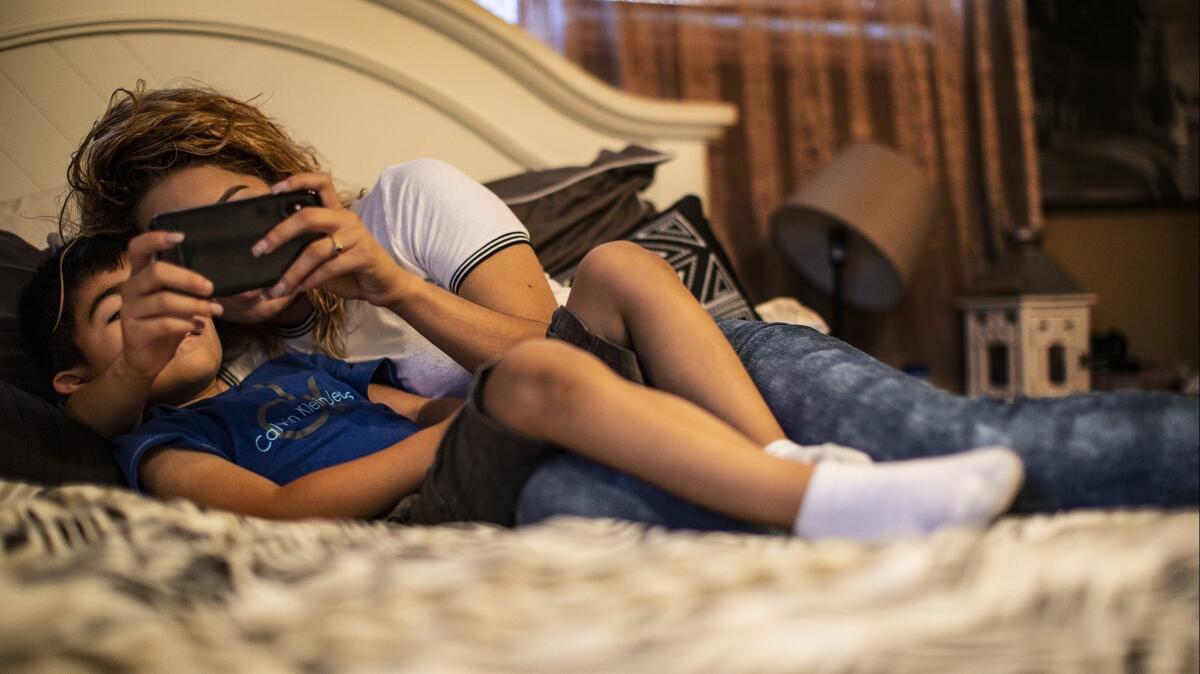Judge orders Trump administration to act on young Central American refugees left in limbo

A federal judge in San Francisco has ordered the Trump administration to resume processing the applications of more than 2,700 young Central Americans and family members who were left in limbo after the government abruptly ended a program designed to help them reunite with relatives in the United States.
The Central American Minors program, created in late 2014 in response to a surge of tens of thousands of unaccompanied children fleeing violence in the region, was billed as a safe alternative to a dangerous journey north through Mexico. It allowed immigrants who were lawfully present in the U.S. to apply for refugee status or humanitarian parole on behalf of their children younger than 21, as well as for their spouses and grandchildren living in El Salvador, Guatemala or Honduras.
Those affected by the courtâs decision spent months or years going through a rigorous application process and already had been approved by U.S. Citizenship and Immigration Services to relocate to the U.S. as long as they cleared medical and final security checks.
Advocates filed a class-action lawsuit last July on behalf of six families over the termination of the program. Some already had paid for flights and were days away from reuniting when, lawyers say, the Trump administration secretly shut down the program in January 2017.
The administration officially ended the program that August.
Spokesman Daniel Hetlage said the agency canât comment in detail on pending litigation. âUSCIS is studying the courtâs decision and will take appropriate steps in compliance with the law,â he said.
President Trump signed an executive order on immigration enforcement in January 2017, calling on the Department of Homeland Security to exercise parole only when someone demonstrates âurgent humanitarian reasons or a significant public benefit.â According to USCIS, DHS decided to rescind the Central American Minors program because it provided parole too broadly.
One of the plaintiffs is a woman known as S.A., whose youngest daughter and grandson were set to arrive in February 2017 after she paid nearly $5,000 for their flights, DNA tests and other program requirements before the administration blocked their travel.
S.A., 53, has maintained lawful status in the U.S. since 2001 under a program designed to help citizens of countries experiencing armed conflict or other conditions that prevent them from returning safely.
After applying for the program, S.A.âs daughter, identified in the lawsuit as J.A., temporarily fled her hometown three hours from San Salvador after receiving threats from gang members. Now the 24-year-old rarely leaves home and relies on money her mother sends her to survive.
S.A., who works for a lice-removal company near San Francisco, said she is newly hopeful that she will be able to reunite with her daughter and 4-year-old grandson.
âThat has been my desire since I left them â to be together once again,â she said.
Other plaintiffs included a teenage girl who was forced to drop out of high school a few months short of her graduation because an MS-13 gang member was trying to forcibly âdateâ her and she feared she could be raped or killed; a teen boy beaten so badly after refusing to join MS-13 that he required surgery and now uses a cane to walk; and another teen boy whose uncle was shot and killed by MS-13 outside the boyâs home.
Lawyers had asked the court to reinstate conditional approvals for the 2,714 applicants and resume processing those for applicants who were in earlier stages of the process when the program ended. The court denied the latter request.
In December, U.S. Magistrate Judge Laurel Beeler found that the federal governmentâs mass revocation of conditional approvals was unlawful. On Friday, Beeler ruled that the governmentâs action was causing irreparable harm to the plaintiffs by preventing the children from escaping life-threatening danger.
The court ordered USCIS to submit a plan by March 21 for continuing to process the applications.
Linda Evarts, an attorney with the International Refugee Assistance Project who represents the plaintiffs, said her clients had trusted the governmentâs process and done everything required of them.
âThese are people who are living in really deadly circumstances,â she said. âAll they want to do is come to safety in the United States with their parents.â
[email protected] | Twitter: @andreamcastillo
More to Read
Sign up for Essential California
The most important California stories and recommendations in your inbox every morning.
You may occasionally receive promotional content from the Los Angeles Times.










